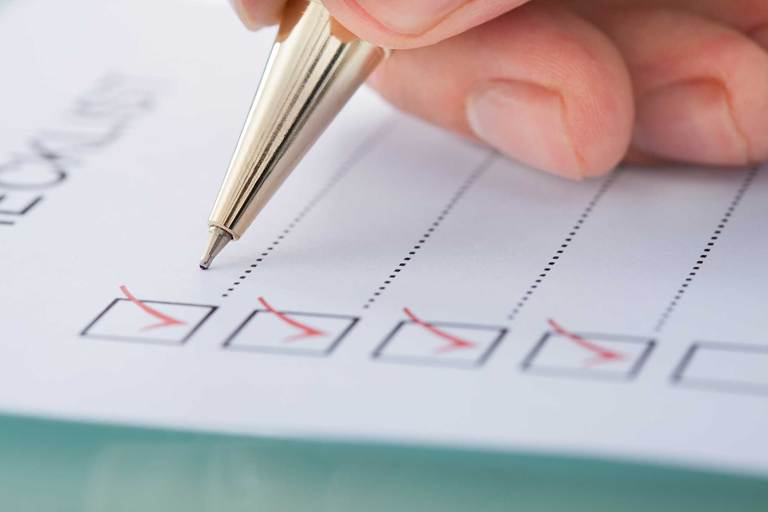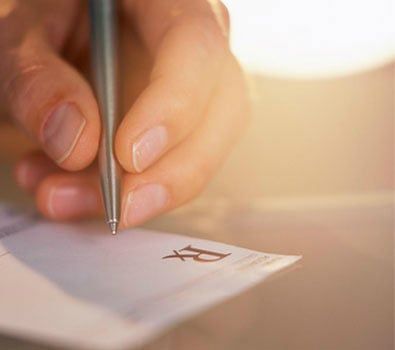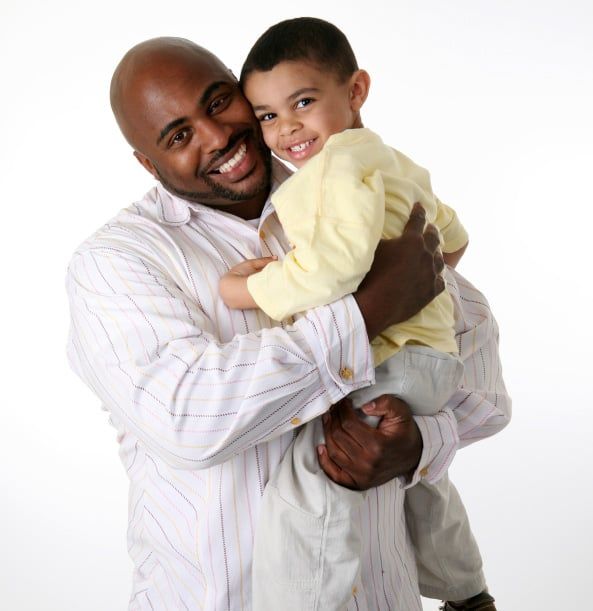Pre-Surgery Instructions
Before any oral surgical procedure you should:
- Eat a light and easily digestible meal the night before your appointment
- If you are going to be sedated, DO NOT eat or drink anything on the day of your appointment
- Wear short sleeves and loose-fitting clothing
- Arrange for a relative or friend to stay in the office with you and be ready to drive you home
- You may NOT drive a car on the day of the surgery if you are to be sedated!

Post-Surgery Instructions
Fold a piece of clean gauze into a pad thick enough to bite on and place directly on the extraction site. Apply moderate pressure by closing the teeth firmly over the pad. Maintain this pressure for about 30 minutes. If the pad becomes soaked, replace it with a clean one as necessary. Do not suck on the extraction site (as with a straw). A slight amount of blood may leak at the extraction site until a clot forms. However, if heavy bleeding continues, call your dentist. (Remember, though, that a lot of saliva and a little blood can look like a lot of bleeding.)
The Blood Clot
After an extraction, a blood clot forms in the tooth socket. This clot is an important part of the normal healing process. You should therefore avoid activities that might disturb the clot.
Here's how to protect it:
- Do not smoke, rinse your mouth vigorously or drink through a straw for 24 hours.
- Do not clean the teeth next to the healing tooth socket for the rest of the day. You should, however, brush and floss your other teeth thoroughly. Gently rinse your mouth afterwards.
- Limit strenuous activity for 24 hours after the extraction. This will reduce bleeding and help the blood clot to form. Get plenty of rest.
- If you have sutures, your dentist will instruct you when to return to have them removed.
Your dentist may prescribe medication to control pain and prevent infection. Use it only as directed. If the medication prescribed does not seem to work for you, do not increase the dosage. Please call your dentist immediately if you have prolonged or severe pain, swelling, bleeding, or fever.
Swelling & Pain
After a tooth is removed, you may have some discomfort and notice some swelling. You can help reduce swelling and pain by applying cold compresses to the face. An ice bag or cold, moist cloth can be used periodically. Ice should be used only for the first day. Apply heat tomorrow if needed. Be sure to follow your doctor's instructions.
Diet
After the extraction, drink lots of liquids and eat soft, nutritious foods. Avoid alcoholic beverages and hot liquids. Begin eating solid foods the next day or as soon as you can chew comfortably. For about two days, try to chew food on the side opposite the extraction site. If you are troubled by nausea and vomiting, call your dentist for advice.
Rinsing
The day after the extraction, gently rinse your mouth with warm salt water (teaspoon of salt in an 8 oz. glass of warm water). Rinsing after meals is important to keep food particles away from the extraction site. Do not rinse vigorously!

After Placement of Dental Implants
Do not disturb the wound. Avoid rinsing, spitting, or touching the wound on the day of surgery. There will be a metal healing abutment protruding through the gingival (gum) tissue.
BLEEDING. Some bleeding or redness in the saliva is normal for 24 hours. Excessive bleeding can be controlled by biting on a gauze pad placed directly on the bleeding area for 30 minutes. If bleeding continues please call the office for further instructions.
SWELLING. Swelling around the mouth, cheeks, eyes and sides of the face is not uncommon as it is the body's normal process in repairing itself. Swelling does not always appear immediately. It may take 12 to 24 hours before swelling becomes apparent. Swelling may not reach its maximum until 2-3 days post-surgery. Swelling may be minimized by the immediate use of ice packs post-surgery. Two baggies filled with ice, or ice packs should be applied to the sides of the face where surgery was performed. The ice packs should be left on continuously while you are awake. After 36 hours, ice has no beneficial effect. If swelling or jaw stiffness has persisted for several days call the office.
DIET. Drink plenty of fluids. Avoid hot liquids or hot food. Soft food and liquids should be eaten on the day of surgery. Return to a normal diet as soon as possible unless otherwise directed.
PAIN MEDICATION. You should begin taking pain medication as soon as you feel the local anesthetic wearing off. For moderate pain, 1 or 2 Tylenol or Extra Strength Tylenol may be taken every 3-4 hours. Ibuprofen (Advil or Motrin) may be taken instead of Tylenol. Ibuprofen, bought over the counter comes in 200 mg tablets: 2-3 tablets may be taken every 3-4 hours as needed for pain. For severe pain, the prescribed medication should be taken as directed. Be sure to take the prescribed antibiotics as directed to help prevent infection. Do not take any of the above medication if you are allergic, or have been instructed by Bello-Burgos Smiles not to take it.
HOME HYGIENE CARE. The night of surgery, use the prescribed Peridex Oral Rinse before bed. The day after surgery, the Peridex should be used twice daily, after breakfast and before bed. Be sure to rinse for at least 30 seconds then spit it out. Warm salt water rinses (teaspoon of salt in a cup of warm water) should be used at least 4-5 times a day, as well, especially after meals. Brushing your teeth and the healing abutments is no problem, but be gentle initially with brushing the surgical areas. Good oral hygiene is essential to good healing.
PHYSICAL ACTIVITY. Keep physical activities to a minimum immediately following surgery. Physical activity could cause throbbing or bleeding of the surgical implant area.
WEARING DENTURES. You will always have teeth during your recovery period. Temporary partial dentures or full denture arches should not be used immediately after surgery and for at least 10 days.

Post-Surgery Instructions for Children
Anesthesia - The feeling of numbness will begin to wear off in 30 minutes to 4 hours. Until that time, avoid all hot foods or liquids, and do not chew. This is to prevent accidentally burning or biting the lips, cheeks, inside of your mouth or tongue until the feeling has returned
Gauze Pack - Fold the gauze into a small pack and place over the extraction site and apply firm pressure for one to two hours. Change the gauze pack every 15-30 minutes.
Bleeding - It is normal for the extraction site to bleed slightly or ooze blood for 12 to 24 hours following surgery.
Ice Pack - For the first 2 to 8 hours after surgery, ice packs should be applied to the outside of the face over the area of the extraction site. The ice pack should be held in place for 15 minutes on, and then removed for 15 minutes. Doing this throughout the day will help reduce discomfort and swelling.
Medications - DO NOT TAKE ASPIRIN PRODUCTS due to the possible increase in bleeding potential. If prescription medications were prescribed please follow label instructions carefully. For most extractions, a non-aspirin over the counter pain medication will provide good pain relief. Do not take more than the recommended dosage!
Diet - A liquid or soft diet should be adhered to for the first 12 to 24 hours after surgery. It is important to drink plenty of liquids for the first day or two. Avoid the use of a straw as it may dislodge the blood clot that is forming in the extraction site.
Oral Hygiene - Clean the rest of your mouth as usual, however avoid bumping or brushing the extraction site. DO NOT RINSE OR SWISH YOUR MOUTH for the first 24 hours following surgery.
Possible Complications:
Dry Socket - This is sometimes a problem after surgery. The symptoms associated with dry socket are constant moderate to severe pain, bad taste, putrid odor, and poor clot formation at the surgical site. If you think you have ANY of these symptoms call our office as soon as possible.
Fever - Monitor your temperature for the first 24 to 48 hours. Any elevated temperature should be reported to our office.
Swelling - Some swelling during the first 24 to 48 hours can be expected.
